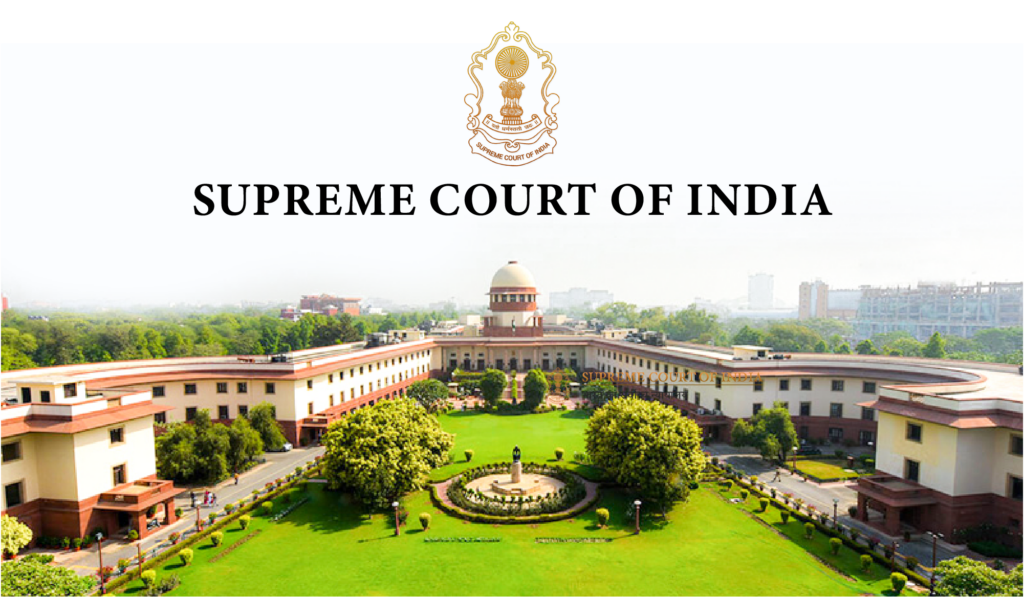Supreme Court Women Lawyers Association vs. Union of India
Date: December 17, 2024
The Supreme Court of India has issued a directive to the government to respond to a public interest litigation (PIL) filed by the Supreme Court Women Lawyers Association (SCWLA), which seeks stringent measures to combat crimes against women, including the implementation of chemical castration for sex offenders. The PIL also advocates for a complete ban on free online pornography and proposes withholding bail for individuals accused of heinous crimes against women until trial proceedings commence.
A Bench headed by Justice Surya Kant directed that the petition be served on the Attorney General of India, R. Venkataramani, and sought his assistance in addressing the matter. Represented by senior advocate Mahalakshmi Pavani, SCWLA argued that despite the passage of 12 years since the Nirbhaya gang rape and murder case, the safety and security of women in India remain a serious concern.
“Radical” Solutions Proposed like Chemical Castration for Sex Offenders in PIL
During the proceedings, Ms. Pavani highlighted the urgency for systemic change, citing the R.G. Kar case of a postgraduate doctor’s rape and murder in Kolkata as a stark example of continuing violence against women. She urged the court to establish nationwide safety guidelines for women.
The Bench acknowledged the gravity of crimes against women but expressed reservations about some of the petition’s recommendations. Justice Kant termed the suggestion of chemical castration as a “radical” approach, emphasizing that the persistent issue lies not in the absence of laws but in their ineffective enforcement.
Key Proposals in the Petition
The PIL outlines several recommendations, including:
- Chemical Castration: Introducing legislation to chemically castrate all convicts of sexual offences against women and children. It also suggests permanent castration for individuals sentenced to life imprisonment or death for such crimes.
- Ban on Free Online Pornography: Advocating a complete ban on unrestricted access to online pornographic content, which the petition claims perpetuates a culture of violence and objectification of women.
- Database Access: Granting women access to the National Database on Sexual Offenders maintained by the National Crime Records Bureau (NCRB) to promote transparency and safety.
- Fast-Track Trials: Mandating fast-track courts to expedite the adjudication of sexual offences within a six-month timeframe.
The petition further sought a directive for the Law Commission of India to examine the feasibility of chemical castration as a punitive measure.
Judicial Perspective on Enforcement
While acknowledging the petition’s urgency, Justice Kant emphasized that the proliferation of crimes against women is not due to the inadequacy of existing laws but rather their poor enforcement. The Bench called for systemic reforms to strengthen law enforcement mechanisms and ensure accountability.
Parallel Case Law and Global Precedents
The concept of chemical castration as a deterrent for sexual offences has been a contentious topic globally. Countries like South Korea, Indonesia, and some U.S. states have implemented chemical castration for convicted sex offenders under strict regulatory frameworks. In India, however, the proposal has sparked debates over ethical, medical, and constitutional implications.
The court also drew attention to the lack of uniform safety protocols for women across the country and urged stakeholders to work towards implementing pragmatic and enforceable solutions.
Context and Public Reaction
The PIL draws parallels with landmark cases such as the 2012 Nirbhaya gang rape case and subsequent amendments to criminal laws. Public discourse around sexual violence has intensified, with activists and legal experts demanding harsher punishments and systemic reforms.
However, civil rights advocates have raised concerns about chemical castration as a potential violation of human rights. They argue for a rehabilitative approach to criminal justice rather than one focused on punitive measures.
Way Forward
The court’s decision to engage the Attorney General and the Law Commission reflects the gravity of the issues raised in the petition. Whether the proposed measures, particularly chemical castration, will find traction in legislative and judicial circles remains to be seen.
For now, the Supreme Court has underscored the need for better implementation of existing laws, effective policing, and fast-tracking justice for survivors of sexual violence.
Similar Case Law Reference:
The Karnataka High Court, in Venkatesh Murthy vs. State of Karnataka (2019), rejected a plea for the chemical castration of a rape convict, citing the absence of legislative backing and potential conflicts with constitutional rights. This case underscores the judiciary’s cautious approach toward radical punitive measures.







